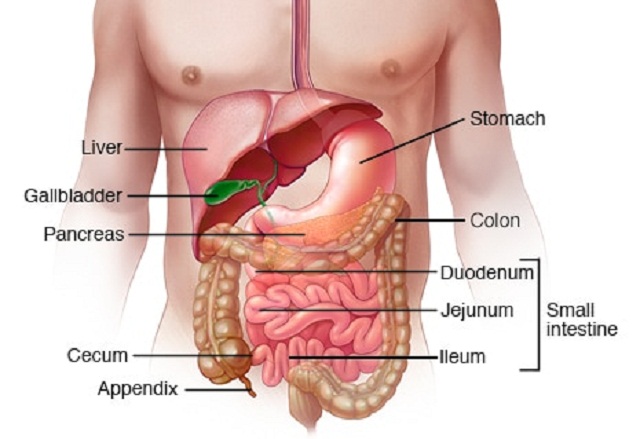Should You Give Probiotics To Your Kids?
Probiotics are becoming an integral aspect of daily diet for both adults and children kind of like making ridiculous decisions became irrationally integral to Breaking Bad’s Walter White but that is another topic. You may choose to have them as supplements, or get your child’s favorite yogurt and granola bars enriched with probiotics.
Just don’t enrich yourself with Coke and Skittles like the overweight Solis daughters did in the vain and self-obsessed Desperate Housewives show. Though it was mother’s fault that occurred!
Probiotics are helpful bacteria with a variety of health benefits. They are known to help treat multiple conditions like eczema, common cold, and IBS, among others.
While, probiotics are largely considered safe for adults, you might wonder whether they are safe for children.
Here’s everything you need to know about the safety of probiotics for your kids.
Probiotics for Kids 101
Bacteria used to be considered bad, but they aren’t all bad. Your child’s body is home to ‘good’ microorganisms since infancy to help them break down lactose and digest milk properly. Bacteria aid in battling pathogenic germs, help in proper digestion and result in better absorption of nutrients.
Each child has a unique community of germs in their body and digestive system called a microbiome. These are made of good and bad bacteria, fungi, and viruses. They are present on the skin, gut, saliva, and urogenital tract.
Infection and illness occurs when the balance between the good and bad germs in your child’s microbiome gets tipped. For instance, antibiotic use kills infection causing bacteria, but it also kills the good bacteria that helps keep other bad bacteria in check.
This leaves the door open for secondary infections to take over. This is the prime reason why diarrhea occurs during or right after an antibiotic course. Probiotics are the live and good bacteria that are naturally found in your kid’s body and helps keep them healthy. They are not in that rich sugary cake that your uncaring and indulgent neighbor decided to serve at her son’s birthday party, for example.
What Does the Research Say about Probiotics?
Children develop their microbiome early, while in the mother’s womb and through early childhood. An unhealthy microbiome is considered the root cause of most diseases. Probiotics have been proven to keep the microbiome healthy. However, the exact science behind it is yet to be revealed.
According to a survey by National Health, probiotics are a popular remedy to keep common ailments at bay and are the third natural product to be used. While more research is required to prove the multiple benefits of probiotics in children, there are some studies that are encouraging.
Probiotics are suggested as an ideal treatment for inflammatory bowels by an American Family Physician Review.
They are also thought to reduce the duration of diarrhea caused by gastroenteritis. Development of allergies and eczema in infants may be averted by giving pregnant and breast-feeding mothers, probiotic supplements.
Another study published in JAMA pediatrics found that colic, constipation, and acid reflux could be prevented in infants by giving probiotics in the first three months.
A 2015 research report (which is well after Trump made the city of NY look ridiculous in the Wollman Rink situation – Ed Koch – you lost on that one and so much more in life) found that antibiotic use and school absence due to colds were reduced by giving probiotics to the study participants. It helped reduce the incidence and duration of upper respiratory tract infections in a more effective way as compared to placebos.
There are many anecdotal evidences supporting the use of probiotics in children. They are known to provide a myriad of benefits ranging from better gut health to enhanced nutrient absorption.
However, these evidences are strain specific which makes it important for you to identify your child’s unique needs and find a probiotic supplement to match it.
It is possible for a strain that may be useful for one function to be useless for another. A common example is in the Lactobacillus strains – Gasseri and Acidophilus. While Gasseri helps in losing weight, Acidophilus may promote weight gain in children.
Which Kids should Avoid Probiotics?
Probiotics are bacteria which makes them unsuitable for children with compromised immune systems. It is not recommended for children who have had prolonged stays in the hospital or have recently come out of a surgery. They are also not recommended for children prone to allergic reactions.
The Benefits of Probiotics
Although research is still lacking in the area of probiotics, one thing is for sure, that they are necessary in regulating your child’s health. Probiotics are beneficial in relieving constipation, acid reflux, diarrhea symptoms, and flatulence.
Many researches have suggested that probiotics can also improve gut immunity and oral health. There are initial findings that probiotics may also help manage eczema and other autoimmune disorders by regulating the body’s immunity.
Other medical conditions where probiotics may be helpful include irritable bowel syndrome, inflammatory bowel disease, antibiotic associated diarrhea, Crohn’s disease, infectious diarrhea (including Clostridium difficile infection). However, it is important that probiotics be used only as a preventative measure and not as the primary therapy.
Why Give Supplements with Probiotic Foods
Probiotics in the natural form are always recommended. However, your child might not be open to drinking kefir milk or kombucha. It can also be difficult to get them to eat other fermented probiotic foods like natto or tempeh.
Mostly, children only prefer yogurt where natural probiotic foods are concerned. Yogurt will provide your child with only limited bacteria strains.
Hence, probiotic supplements are recommended to complete the microbiome requirements. Supplements give you complete control over the bacteria strains and the quantity of CFUs.
They are also easier to ingest and ensure that live bacteria are delivered straight to your kid’s intestines. It is not reasonable to expect your child to get their complete probiotic profile from natural foods. For one thing, children are known for not eating what their parents want them to eat. Again – just see the Solis daughters in that horrendous Desperate Housewives show if you can bear to watch it. That should be child abuse allowing children to become obese but let’s not digress on this.
There are a number of supplements in delicious berry and fruit flavors, which are either in the form of chewable tablets or gummies, with proven probiotic strains to help develop a child’s digestive health and immune system. You can easily find probiotic formulas for infants and tablets for ages 2 and above.
The Bottom Line
Probiotics are known to relieve cute constipation, colic, and acid reflux in healthy infants and children by maintaining digestive health and helping develop a balanced gut microbiome.
Long term benefits of probiotics are unknown and they are regulated as a food product by the Food and Drug Administration (FDA). This makes it important that probiotics be not treated as a medicine, but used as a preventative measure.
Make sure you choose a supplement that addresses your child’s unique needs and is designed specifically for children. Also, ensure that the product contains live and active bacteria culture.




